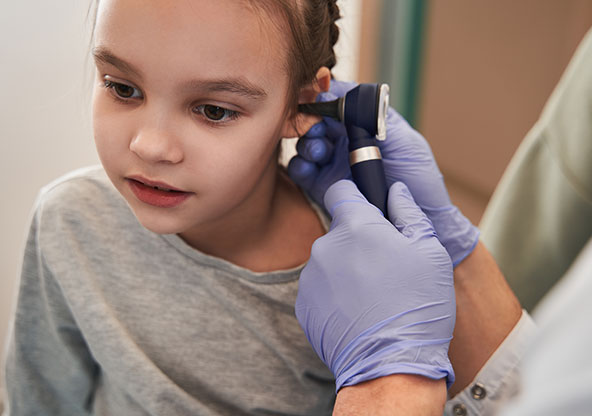How to Prevent Ear Infections
Eventually, every parent hears the same phrase from their child: “My ear hurts.” Often, it is a sign of an ear infection.
The body’s immune system clears up many ear infections on their own but help from antibiotics is sometimes necessary.
You can prevent ear infections with a few simple steps, reducing your child’s risk, which includes:
- ear pain
- fever
- temporary hearing loss
What Causes Ear Infections?
Ear infections are the most common reason children visit a physician, according to the National Institute on Deafness and Other Communication Disorders.
Why are these infections widespread?
The American Academy of Pediatrics states that the common cold and other upper respiratory infections, which are common in children, can cause ear infections. In addition, children’s immune systems are not fully developed, making them more vulnerable to illnesses like ear infections.
These infections occur in the middle ear, where bacteria or viruses cause the Eustachian tubes to swell, which run from the middle ear to the upper part of the throat. When the tubes swell, mucus cannot drain. When this happens, infected fluid remains in the middle ear, causing a middle ear infection. Children have smaller Eustachian tubes than adults, increasing the challenge of diverting fluid due to infection.
How to Prevent Ear Infections: Start With Simple Changes
Not all ear infections are avoidable, but you and your child can take steps to reduce the risk. These preventive actions can start early in life.
Breastfeeding your baby, for example, helps protect them against infections thanks to antibodies in breast milk. If your baby uses a bottle, do not put them down to sleep with it. Babies who drink from a bottle while lying down have a higher risk of ear infections because milk can reach their Eustachian tubes.
When your child is old enough, show them the correct way to use soap and water to wash their hands, and encourage them to do so often. Set a good example by washing your hands frequently. Clean hands reduce the spread of germs that can lead to ear infections.
Also, do not let your child play with other children who are sick. Keeping them apart until everyone is well can help stop the spread of germs.
How Do Vaccinations Help Prevent Ear Infections?
Vaccinations can help protect your child from a variety of illnesses. That includes ear infections.
A vaccine targeting ear infections does not exist, but the pneumococcal vaccine protects against bacteria that commonly cause ear infections. In addition, vaccinating your child against the flu can also reduce their ear-infection risk.
Secondhand Smoke Increases Risk
Secondhand exposure to cigarette smoke can harm children’s health in many ways, including by increasing their risk for ear infections, according to the CDC.
Cigarette smoke can cause swelling and blockages in the Eustachian tubes, leading to problems in the middle ear.
Secondhand smoke can make ear infections more frequent and severe. To help protect your child, do not smoke around them or allow others to do so.
Wondering what to do if your child has an ear infection? Find a CHRISTUS Health pediatrician provider who can help.
- National Institute on Deafness and Other Communication Disorders
- The American Academy of Pediatrics
- Centers for Disease Control and Prevention

